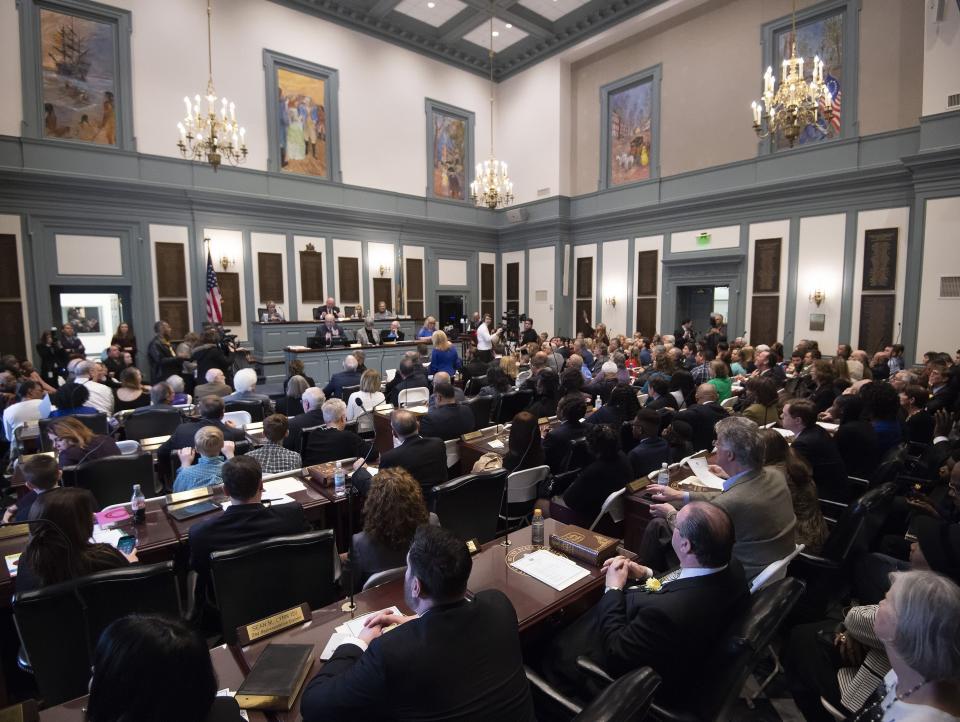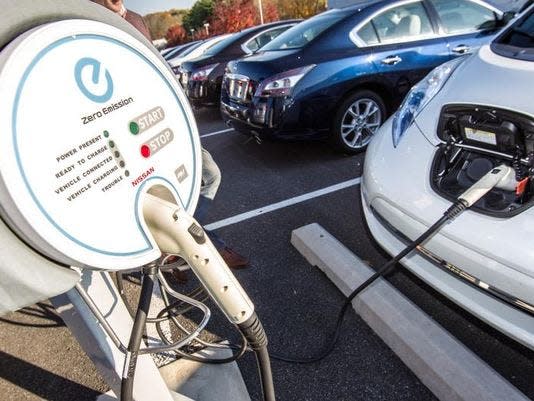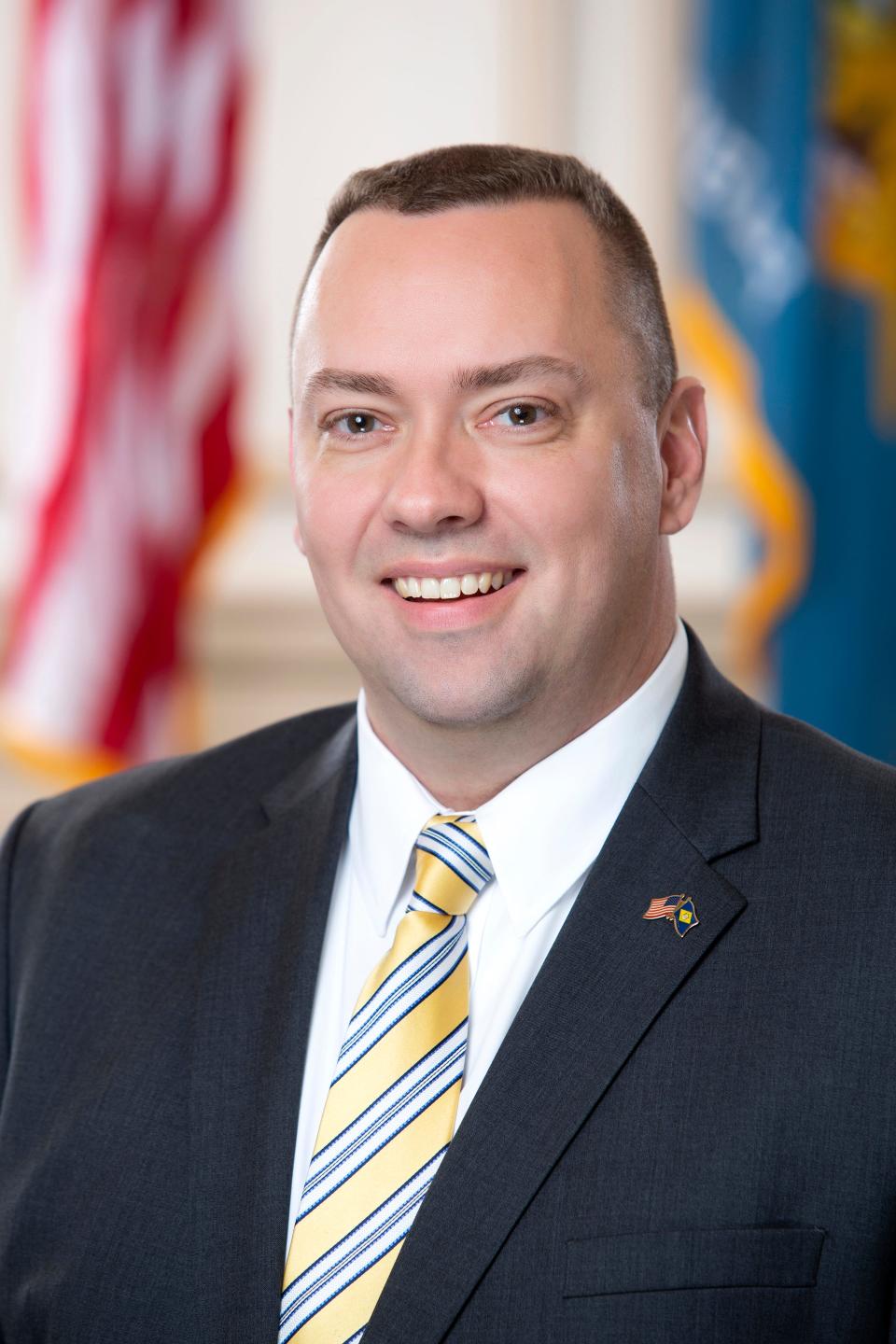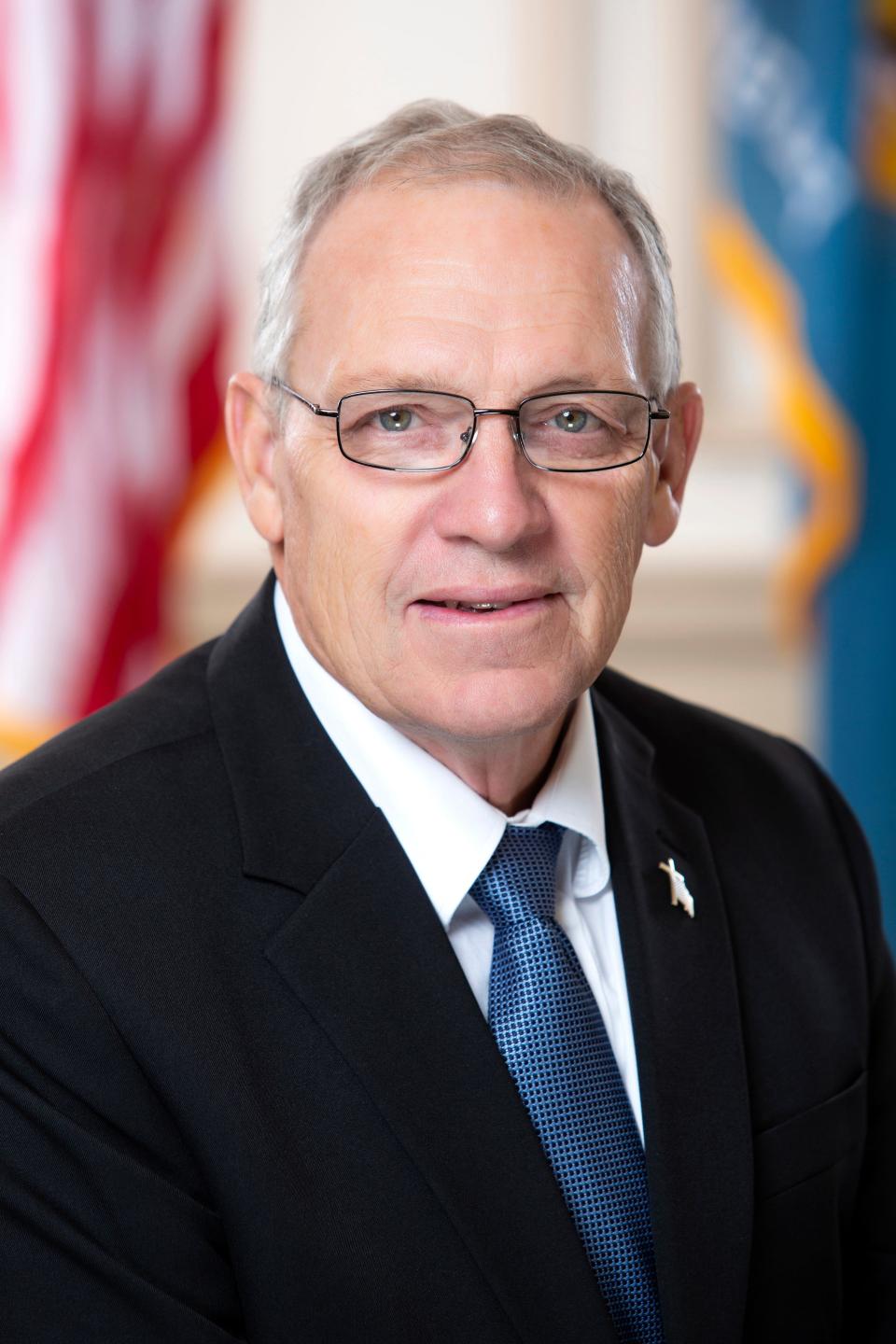Why Republicans want more legislative oversight on Delaware regulations, emergency powers
Delaware Republicans want to place a check on the governor’s emergency powers and give legislators more oversight on statewide regulations following the passage of an electric vehicle mandate last year.
Legislators announced Wednesday a joint effort among Republican lawmakers to pass three bills that they say will provide “safeguards on the unrestrained rulemaking authority of the executive branch.”
The goal, elected officials said, is to give power to the people.

“I’m attempting to make it clear that I’m not asking to take over the governor’s role,” state Rep. Rich Collins said during a Zoom news conference Wednesday morning. “We’re just saying we want people to have a voice.”
The bills aim to restrict the governor’s emergency powers, create a new joint committee on Oversight of Agency Regulations and enhance the General Assembly’s oversight of regulations by giving “standing House and Senate committees purview to review regulatory proposals with their scope of focus.”
YOUR QUESTIONS, ANSWERED: What you need to know about state's new electric vehicle mandate
Some of the efforts have been long-standing, like Collin’s House Bill 245, while others were prompted by the Delaware Department of Natural Resources and Environmental Control's approval of an electric vehicle mandate.
Efforts to give more power to legislators and the public on state regulations also come amid some members of the Delaware GOP filing a complaint in Delaware Superior Court over the mandate.
More oversight of regulations
Bills giving legislators more oversight over state regulations were prompted after the state finalized regulations mandating the phasing out of gas and diesel-powered vehicles over the next nine years.
The Advanced Clean Car II Act mandates automobile manufacturers in Delaware to hit a certain percentage of zero-emission vehicle sales each year, gradually increasing between 2027 and 2032.

The rules will take effect Jan. 2, 2026, for model year 2027 vehicles.
In model year 2027, 43% of new cars and trucks sent to Delaware for sale must be zero-emission vehicles. This percentage will gradually increase to 82% by 2032, and the mandate is set to expire by model year 2033.
INDUSTRY CONCERNS: Car dealers worry about the low demand for electric vehicles in Delaware
State Sen. Brian Pettyjohn said thousands of Delawareans submitted public comments opposing the electric vehicle mandate, and their concerns should carry more weight. Of 4,426 people who responded, Pettyjohn said 4,182, or 94.5%, opposed the mandate.
“So for DNREC to go ahead and do it anyway, regardless of overwhelming bipartisan, north-south, anyway you want to cut it, opposition to this,” he said. “It underscored the fact that the regulatory process in Delaware, when it comes to the public comment and the public weighing in and their concerns having serious weight, the weight that it deserves, were nil.”

State Rep. Jeff Spiegelman plans to introduce two proposals that aim to change that:
Create a Joint Committee on Oversight of Agency Regulations to engage in the review and oversight of regulations adopted by state agencies.
Give standing House and Senate committees purview to review regulatory proposals with their scope of focus.
The oversight committee legislation would also require all regulations adopted by an agency between Nov. 1 and Oct. 31 to expire at 5 p.m. on the following June 30, unless the General Assembly acts to prevent it and establish criteria for the committee’s review of regulations along with public oversight over the committee’s process.
Delaware GOP members also filed a complaint against the state's EV mandate approval.
RELATED: Delaware GOP files complaint against Delaware's electric vehicle mandate
Restricting governor’s emergency powers
State leaders across the country used executive emergency powers amid the COVID-19 pandemic, but as the powers were extended for months – and some instances, over a year – legislators began questioning this sweeping ability.

Delaware Republicans have done the same, and Collins’ House Bill 245 again attempts to curb that power.
Collins stressed that the bill recognizes the statutory authority of the governor to act in the event of an emergency or disaster, but those emergency powers lasting more than 180 days would require General Assembly approval. The General Assembly approval requirement could be waived only if it’s not possible for both houses to meet.
EXECUTIVE POWERS: Carney announces end date for Delaware's COVID-19 state of emergency
Delaware’s governor would still be able to end an emergency order without approval, but any new “non-weather related emergency order issued within six months of the termination of a prior order and based upon substantially similar reasons shall be invalid unless approved by the General Assembly.”
The bill also stipulates that any order that requires the closure of businesses, industry, religious or nonprofit settings “must delineate which type of business or facilities are to be closed.”
Got a tip? Contact Amanda Fries at afries@delawareonline.com, or by calling or texting 302-598-5507. Follow her on X at @mandy_fries.
This article originally appeared on Delaware News Journal: Delaware Republicans want more oversight on state regulations, powers

